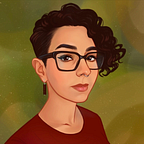The Fast and The Curious
— “Are you sure you don’t want to drink a little water?”
We were on Day 13 of a 16-day trip conducting fieldwork in central Nigeria. The days were long and the temperatures would often climb to 45 degrees Celsius (115 Fahrenheit). What our fixer didn’t yet realize, however, was that I had just started 29 days of fasting from sunrise to sunset.
Because I do not wear the hijab or attend mosque services regularly, it often surprises my colleagues and acquaintances to learn that I am a Muslim. I used to think my last name was a dead giveaway but came to realize that was mostly only true for immigration officials. During my fieldwork in Nigeria, it also came as a surprise to our fixer, Chris, a devout Christian who was a drummer in his church’s band. Before that day, I think he saw me as just another foreigner. When he previously invited the team to his church for mass — we all went. Chris now had an unsettled look on his face. The revealed truth can have that effect on people. Conversations shift subtly. People look at you differently. And because human nature thrives on mental shortcuts and heuristics, people may put you in a box and suppose you inhabit all of its properties. In a place like Nigeria, with a deeply entrenched religious conflict, disclosing my religion could jeopardize my ability to be a good researcher.
Most Muslim-majority countries operate on a special schedule during Ramadan, with shorter work and school hours and no meal breaks. So in theory I could adapt that schedule on the road. Researching during Ramadan could merely be a feat in preparation: waking up before dawn to eat a protein bar and drink as much water as a body can handle; asking the kitchen at our guest house to hard boil eggs so I can carry my meal in a ziploc bag to break the fast at sundown; keeping busy so the days don’t feel as long.
But that would ignore the fact that social interactions in all cultures around the world revolve around food and drink. When you conduct research in someone’s home, more often than not they will try to feed you as a sign of hospitality. In some cases, it may be rude to say no. In others, it can cause confusion. While visiting a Bhutanese household to research their financial behaviors, the matriarch of the family (with whom I did not share a common language) was saddened and perplexed when I refused her offer of tea and fruits upon entering the house. Even after explaining (through her grandchild) what the fast entails, she posed the inevitable question: “Why?” And that’s when I lost control of the conversation. The focus shifted from the family to me. As a researcher, I have to decide if something I share about myself will expand the field of inquiry or detract from it. In this case, it detracted.
As we approach another Ramadan with more field research on the horizon, I run through scenarios in my head. When possible, I try to hide my fast. If I can’t, I will make a judgment call. Maybe I will break the fast. Because for every rule there are exceptions. The traditional exceptions for Ramadan are travel, health reasons, and, for women, pregnancy and menstrual periods — all cases for which it is sometimes permitted to skip a given day and make it up later in the year. Doing fieldwork does not fall under one of these circumstances. Can I justify eating or drinking during Ramadan to protect the integrity of my research process? Will this make me a lesser Muslim? Maybe. Probably. To most — definitely.
I struggle with how to reconcile these thoughts in my head. The goal of my work is to uncover hidden truths, latent needs, and undiscovered barriers that percolate through people’s lives. But I can only do that work if I’m perceived as neutral, objective, and unassuming — or at the very least, worthy of trust and respect.
I choose to abide by the things I admire about my faith and that align with my values. Fasting, at its core, is about understanding those who have to live day in and day out on an empty stomach. And the ultimate goal of my research is aligned to that same goal — of understanding how people live, think, and survive. This is my workaround. It is not the neatest workaround. But if my ultimate goal is understanding, for that I can choose to eat.
